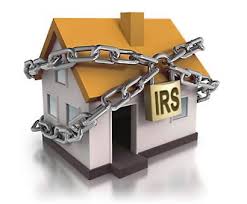
Types of Property Liens
If a property owner owes money to another party, a notice can be attached to the property informing everyone, including potential buyers of the property, that you owe the creditor money. Before you can sell your property and give clear title to the buyer, you would need to pay off the lien.
There are two types of liens, voluntary ones and involuntary liens. A voluntary lien is one that the homeowner agrees to, such as a mortgage. There is usually a contract involved to place a voluntary lien on the property. An involuntary lien is usually placed on a property due to unpaid obligations like a tax bill or a contractor’s home improvement invoice, which is typically called a mechanic’s lien. The involuntary liens are the liens that affect your ability to sell a property easily — and also the more difficult to discharge from the public record.
Not every type of creditor can attach a lien to your property, but here are a few reasons a creditor can attach a lien:
IRS Liens – Owe back taxes? The IRS can place a lien on all of your property and not only that, but they can also force a sale if the amount you owe is substantial.
Property Tax Liens – If you do not pay your property taxes, to protect its mortgage, the lender will usually pay the taxes and add that to your mortgage debt; however, if the taxes are not paid, the government can place a lien on your house order your house to be sold to pay them off.
Mechanic’s Liens – Contractors who perform work on your house and do not receive payment as agreed can record a lien on your property. The contractor them must sue you to enforce the lien. If the contractor wins, he may be able to force the sale of your home.
Judgment Liens – A creditor can place a lien on real estate, and sometimes on personal property after they sue you and win a court judgment.
Child Support Liens – Should you fall behind in alimony or child support, the recipient may place a lien on your home. This lien will stay in place until you pay off the support you owe, sell, refinance or the recipient forces a lien sale of the property.
Unrecorded Municipal Liens – Unrecorded liens can be placed on a property should a property owner not pay a water or sewer utility bill.
About Florida Municipal Lien Search (FMLS)
Florida Municipal Lien Search, LLC is a privately owned and operated company providing title agents, attorneys, and realtors with unrecorded and municipal lien searches for all of the cities and counties in the State of Florida. Florida Municipal Lien Search conducts searches for municipal and county liens, unrecorded utility services, code enforcement violations, code enforcement liens, property taxes and special assessments. Founded on the principals of honesty and integrity, FMLS strives to make each and every client a long term, ongoing relationship. For more information, visit https://floridamunicipalliensearch.com or call 321-325-6255.


